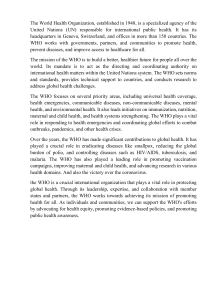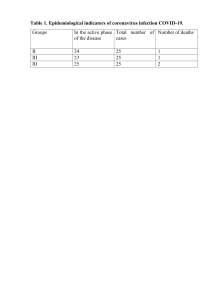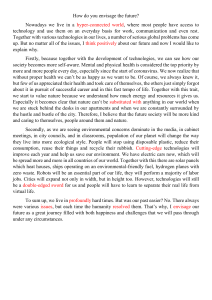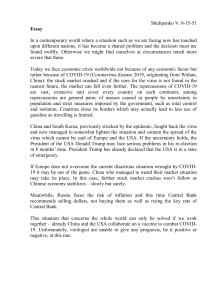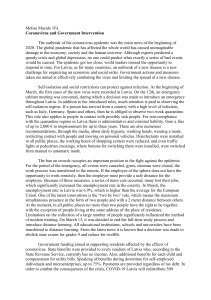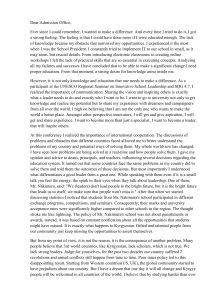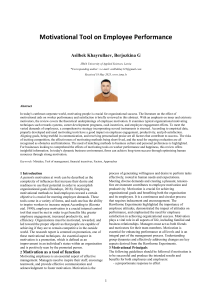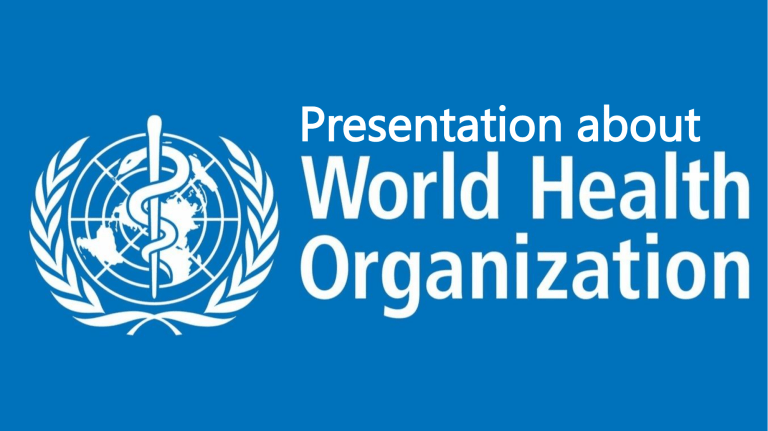
Presentation about Introduction to the WHO The World Health Organization, established in 1948, is a specialized agency of the United Nations (UN) responsible for international public health. It has its headquarters in Geneva, Switzerland, and offices in more than 150 countries. The WHO works with governments, partners, and communities to promote health, prevent diseases, and improve access to healthcare for all. The mission of the WHO The mission of the WHO is to build a better, healthier future for people all over the world. Its mandate is to act as the directing and coordinating authority on international health matters within the United Nations system. The WHO sets norms and standards, provides technical support to countries, and conducts research to address global health challenges. Priorities and Programs The WHO focuses on several priority areas, including universal health coverage, health emergencies, communicable diseases, noncommunicable diseases, mental health, and environmental health. It also leads initiatives on immunization, nutrition, maternal and child health, and health systems strengthening. The WHO plays a vital role in responding to health emergencies and coordinating global efforts to combat outbreaks, pandemics, and other health crises. Achievements Over the years, the WHO has made significant contributions to global health. It has played a crucial role in eradicating diseases like smallpox, reducing the global burden of polio, and controlling diseases such as HIV/AIDS, tuberculosis, and malaria. The WHO has also played a leading role in promoting vaccination campaigns, improving maternal and child health, and advancing research in various health domains. And also the victory over the coronavirus. In conclusion, the WHO is a crucial international organization that plays a vital role in protecting global health. Through its leadership, expertise, and collaboration with member states and partners, the WHO works towards achieving its mission of promoting health for all. As individuals and communities, we can support the WHO's efforts by advocating for health equity, promoting evidence-based policies, and promoting public health awareness. Thank you for your attention.
